The cool springtime, after a Cape winter with normal rainfall, has resulted in ideal flowering, long and synchronous, in the apple and pear orchards of Heinie du Toit’s farm Remhoogte outside Ceres.
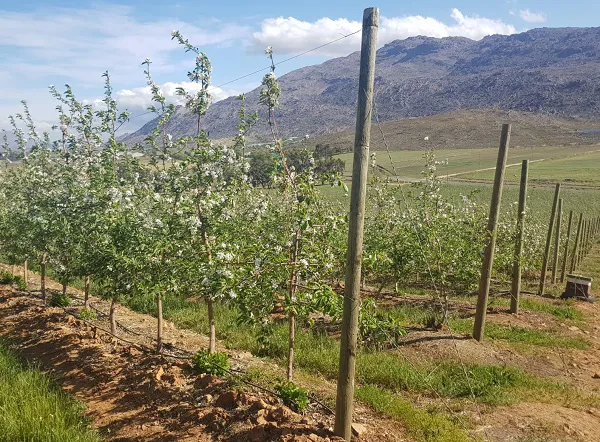 Flowering apple orchards; note the bee hive (photos supplied by Heinie du Toit)
Flowering apple orchards; note the bee hive (photos supplied by Heinie du Toit)
“A longer flowering period means bees are working on the flowers for longer, resulting in better chances for fruit set. It’s been good for the apples and the pears to have had a cool springtime,” he says.
During late winter there were four snowfalls over the Koue Bokkeveld farm, where usually they’re lucky to get snow once a winter. (Yet, he notes, it has not been an exceptionally cold winter when looking at longterm records.)
Ninety percent of their apple trees are flowering now, while the tiny pears are between little finger and thumb nail size.
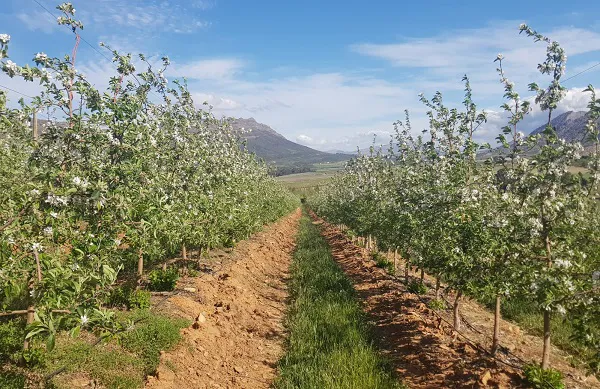 A long flowering period in the apple orchards improves chances for fruit set
A long flowering period in the apple orchards improves chances for fruit set
Organised agriculture cherishes open door to government
Heinie du Toit has recently been elected vice-president of Agri Western Cape, the foremost body for organised agriculture in the province. Together with grain farmer Villiers Loubser, newly elected Agri Western Cape president and Jannie Strydom, their CEO, they represent Agri Western Cape at the national body AgriSA.
“Agri Western Cape has an open door to the provincial government, and via Agri SA to national government," he says. “To keep those doors open, you have to remain committed to dialogue."
He continues: “We cherish the relationship that organised agriculture has with the national government.”
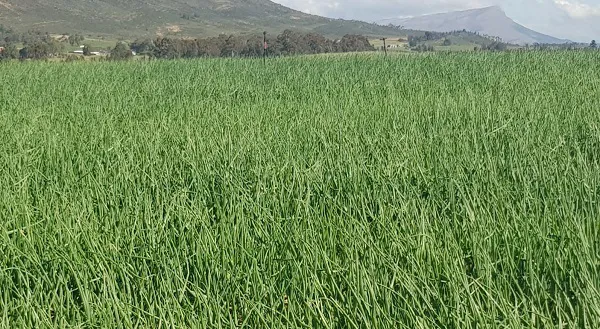 Fields of onion on Remhoogte farm, Op-die-Berg
Fields of onion on Remhoogte farm, Op-die-Berg
Organised agriculture wants involvement in land reform implementation
Their reception to the re-appointment of agriculture minister Thoko Didiza was favourable; she had during her first term impressed with her understanding of the sector. Land reform and rural development were added to the portfolio of agriculture, placing them in the same ministry.
He feels organised agriculture should play an expanded role in the implementation of policies on issues like rural safety or land reform, and they are not short on ideas.
“As organised agriculture, we welcome new entrants into agriculture. Through our own experience we know some ways to do it work better than others. We know how best to go about it. The Witzenberg PALS initiative in this area is an example of a successful mentorship programme.”
The Partners in Agri Land Solutions (PALS) initiative was established by farmers in the Witzenberg area to act as mentors to black farmers.
Drought left behind some good habits
Heinie’s farm is 45km outside Ceres, close to a settlement called Op-die-Berg (On top of the Mountain), beside the Skurweberg. The family has been working this land for 125 years.
“Our annual average rainfall is 650mm and we’re now at 610mm. Most farmers in this area rely on farm dams, with the balance of about 15% coming from boreholes. It’ll probably take another good year of winter rain to restore the water tables. Last year still you could see you needed to drill deeper than you had to five, ten years ago. The snowfalls we've had will be very beneficial for groundwater resources.”
He continues: “It feels like we’ve emerged from a dry climatic cycle, so it’s very difficult to say whether one can already see the signs of climate change. It feels like everything is back to normal this year.”
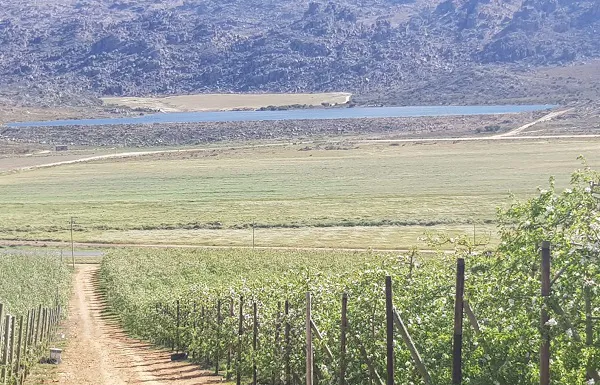 Farm dams, which supply most water in this area, are full this season
Farm dams, which supply most water in this area, are full this season
The past drought has entrenched some water economising practices regarding the control and scheduling of irrigation and a transition from micro to drip irrigation.
Water savings are also possible through using less vigorous dwarf rootstocks and through covering orchards. There are many trials underway in South Africa to determine to what extent nets influence the production and vegetative growth of an orchard.
His father always says they’re closer to the sun on top of the mountain and, Heinie notes, the taste of their fruit is exceptional.
The farm’s apples and pears are exported by CoreFruit. He also grows onions and lucerne.
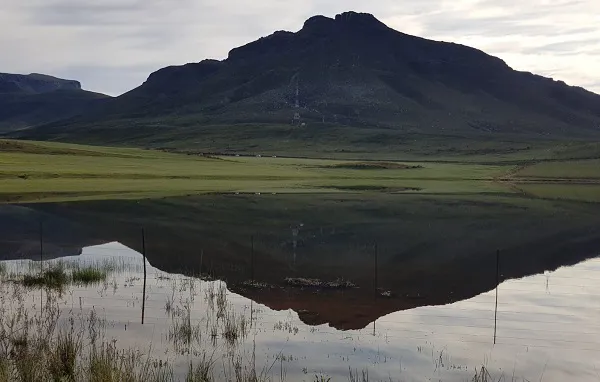 Barley and lupins, planted for Remshoogte's sheep and cattle
Barley and lupins, planted for Remshoogte's sheep and cattle
